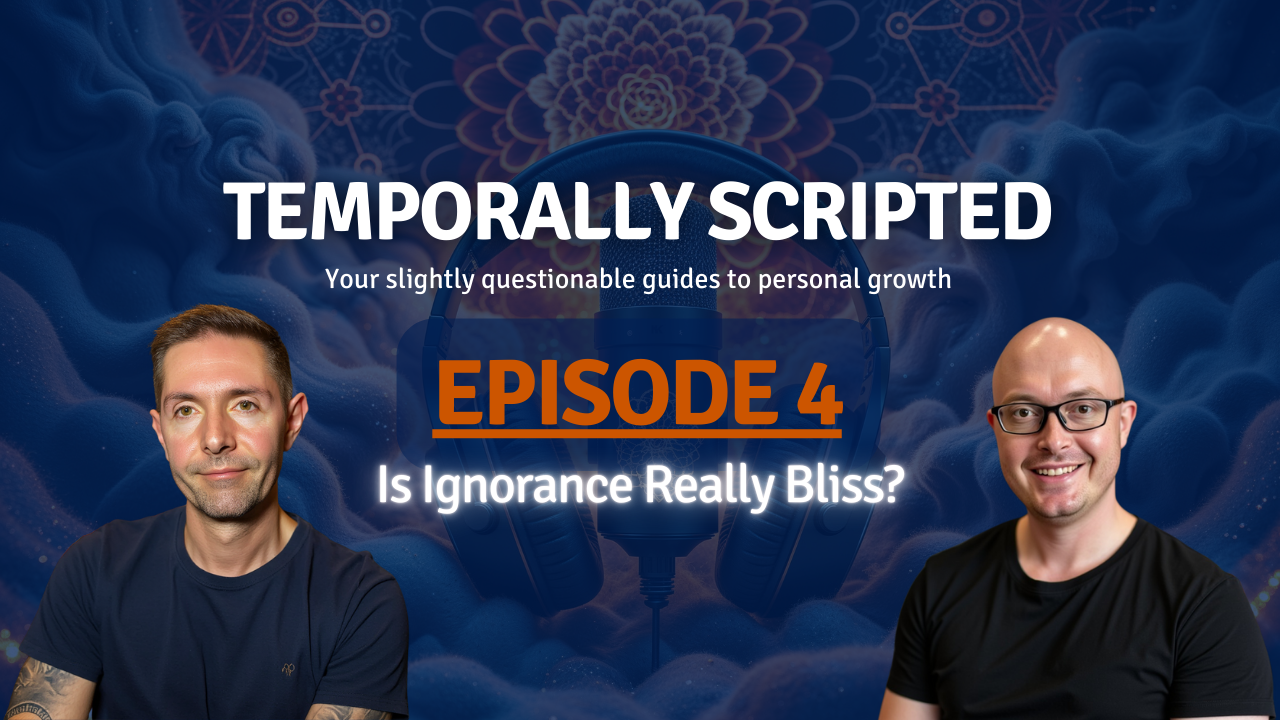In this thought-provoking episode, Jack and Adam explore the counterintuitive relationship between intelligence and happiness.
Studies suggest people with higher IQs are more likely to suffer from anxiety, depression, and overthinking, while those with average intelligence report greater life satisfaction.
From the limitations of IQ testing to the burden of seeing what others miss, they examine why being smarter might actually make you less content with life.
Key Takeaways
- Higher intelligence often correlates with overthinking, perfectionism, and existential anxiety
- The US military won’t accept recruits with IQs below 83 as they’ve found they cannot be productive
- People with lower IQs may experience more consistent happiness without the extreme highs and lows
- IQ tests measure specific cognitive abilities but miss many valuable forms of intelligence
- Western society may overvalue academic intelligence while undervaluing practical wisdom
- Finding your intellectual tribe and channeling overthinking productively may help smart people find happiness
Notable Quotes
Jack: “If your IQ is less than 90, how do you experience life? If you ask somebody with a sub-90 IQ how they would feel if they didn’t have breakfast today… their answer will be, ‘but I did have breakfast today.'” [00:06:00]
Adam: “In the US military, they do tests and they won’t let anyone in with an IQ that’s less than 83, because they say that no matter how hard they try, they can’t make someone with that IQ not be counterproductive.” [00:07:00]
Jack: “Intelligence often correlates with overthinking, with perfectionism, with self doubt, and also self awareness, which can increase existential concerns or general dissatisfaction with existence.” [00:08:00]
Adam: “I would imagine people with high IQs are more aware of what’s going on in the world and also would be able to empathize more with some of the situations that are going on… They might understand how oppressive some laws are, what’s happening with the media, and how it’s affecting everybody.” [00:15:00]
Jack: “Maybe it could be a little bit like antidepressants. You’re jumping from these emotions, and what antidepressants do is they limit that emotional field. So you don’t feel the super lows anymore, but you also don’t feel the highs.” [00:13:00]
Adam: “When you shift it from sports to an intelligence test, it becomes quite a tricky subject. Because if the US military goes, ‘we don’t want anyone lower than this,’ what does that mean for those people in society?” [00:18:00]
Key Discussion Points
Understanding IQ and Its Measurements
- IQ tests measure verbal comprehension, perceptual reasoning, working memory, processing speed
- The average IQ is between 90-100, with a bell curve distribution
- Brain size doesn’t necessarily correlate with intelligence (Einstein had a small head)
- IQ is partly influenced by education and environmental factors
The Experience of Different Intelligence Levels
- Lower IQ individuals struggle with hypothetical thinking and abstract scenarios
- Higher IQ individuals can visualize multiple possibilities, leading to overthinking
- The “ignorance is bliss” concept may have genuine scientific backing
- Intelligence may create a more volatile emotional experience with higher highs and lower lows
Beyond Standard Intelligence Metrics
- An 8-year-old in a rural village might possess survival skills that academics lack
- Indigenous tracking abilities represent a form of intelligence not captured by IQ tests
- Manual workers may have practical intelligence that isn’t reflected in academic measures
- Different cultures and environments require and nurture different types of intelligence
Social and Emotional Implications
- Higher IQ may lead to social isolation when others don’t share your interests or concerns
- Being more aware of global suffering and injustice can create greater personal distress
- Intelligent people may hold themselves to impossible standards
- Finding a community of like-minded thinkers becomes increasingly important
The AI Factor
- Artificial intelligence may eliminate 70% of jobs in the next five years
- This poses particular challenges for those with lower cognitive abilities
- Societal structures may need to adapt to provide meaningful roles for all intelligence levels
Timestamps
00:00 – Introduction to the intelligence-happiness paradox
02:00 – Explaining IQ and its measurements
04:00 – Average IQ and distribution in the population
06:00 – How people with lower IQs experience hypothetical scenarios
07:00 – The US military’s IQ threshold for recruitment
08:00 – Why intelligent people suffer from overthinking and anxiety
10:00 – The loneliness of high intelligence
13:00 – Comparing emotional ranges to antidepressant effects
15:00 – How awareness of global problems impacts happiness
17:00 – Factory work vs cognitive work experiences
18:00 – The uncomfortable discussion of IQ in society
19:00 – Questioning IQ as the ultimate measure of human worth
21:00 – Alternative forms of intelligence beyond academic metrics












